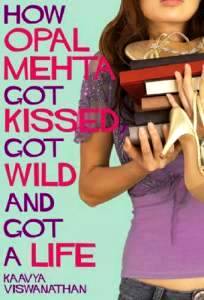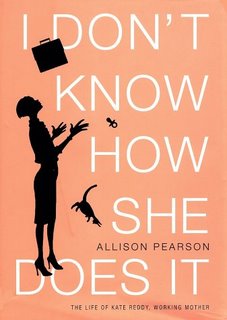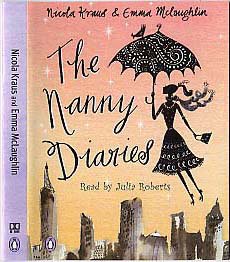 Ha ha ha ha ha. If the story weren’t so tragic, one would be tempted to say Kaavya Vishwanathan was having the last laugh.
Ha ha ha ha ha. If the story weren’t so tragic, one would be tempted to say Kaavya Vishwanathan was having the last laugh.You know a book is 'selling' when you see it at traffic signals across Mumbai. And Opal Mehta is right there - on top of the pirate's pile yesterday.
The list of books being sold thus is actually quite amazing. The pirates definitely do 'market research' at Crossword. The new hot-seller is the voluminous Shantaram but non-fiction titles seem to be more to the car-public's tastes.
It started with the success of Tipping Point. Freakonomics was pirated very soon after its release and now even the 'Undercover Economist' is available. Looks like 'economics' is more viable than the Sidney Sheldons and Jeffrey Archers who once did brisk business.
At a different stage in my life I happily bought pirated editions. Now, I prefer the originals because I like their look and feel. And I feel happier buying them at a fancy bookshop where the aroma of ideas printed on paper hangs heavy in the air.
Diya Mirza confessed on [V]Goddess that she had 1500 pairs of shoes. or was it 15,000? I am OK with 6 pairs of shoes but 1500 books. Maybe, someday, 15,000!
This 15,000 would include all kinds of books. Including chick-lit - a term that constantly came up during the Kavya Vishwanathan controversy.
What is chicklit anyways?
Here's what one website dedicated to the genre has to say:
There is much speculation that chick lit is nothing more than "trash", "fluffy, mind-numbing garbage", "formulaic vapid prose"... That said, chick lit is a genre comprised of books that are mainly written by women for women... There is usually a personal, light, and humorous tone to the books.
I like chick-lit. And I think good chick-lit is very, very difficult to write. Because being breezy without being cheesy is an art. The same as producing a popular, entertaining film.
The experts agree that it all started with Bridget Jones. And the story of how Bridget came into being is, itself fascinating.
Bridget was born as a weekly column in The Independent in October 1995, the brainchild of Charles Leadbeater, then the paper's features editor.
"I was desperate to find a column that appealed to young women," he recalled in 2001. "I wanted something that reflected the eclectic mix of topics women in the office seemed to talk about when they arrived in the morning, as I strained to overhear them without appearing to eavesdrop. I wanted something that covered the topics men assume women talk about when they visit the toilet in groups: make-up, men, food, the outrage of global poverty."
The crucial thing was that Bridget had to be a feisty charcter, and single, appealing to a younger audience.
Enter Helen Fielding, 37, a Leeds-born, Oxford-educated TV presenter ... who was writing for The Independent on Sunday. Charles had read Fielding's first novel, Cause Celeb, a spoof about smug celebrities and African aid, and admired the sardonic but funny voice of the hack narrator.
Fielding was shown a two-page outline of Leadbeater's ideas for the column and its dramatis personae. The two agreed that the heroine should have a very ordinary name. "Like Bridget Jones," said Fielding at once. In the next 30 minutes, she came up with the daily recital of alcohol units, fags, scratch cards and calories that became part of Bridget's unique selling point. You'd have thought she'd nursed the character inside her for years...
In that sense Bridget was not original - she was 'commissioned'. But Helen Fielding added the flesh and bones to that skeleton and created a whole unique character and characteristics.
The column was an instant hit. Women readers detected a wholly sympathetic voice - friendly, confiding and aspirational while simultaneously aghast with self-doubt.
Another very successful chick-lit novel was born out of a column in a British newspaper.
 In November 2000, Allison began writing a fictional column in the Daily Telegraph about the attempts of a hedge fund manager to juggle a demanding career and motherhood. The column provoked a huge response from women readers.
In November 2000, Allison began writing a fictional column in the Daily Telegraph about the attempts of a hedge fund manager to juggle a demanding career and motherhood. The column provoked a huge response from women readers. I Don't Know How She Does It: The Life of Kate Reddy, Working Mother, a novel which drew on material from the columns, was published in 2002 and has now sold over a million and a half copies in 20 different countries. Allison Pearson was named Newcomer of the Year at the British Book Awards.
Kate Reddy happens to be someone I like and identify with far more than Bridget. I reviewed the book for Business Today when it first came out and recommended it to half a dozen friends. Although Kate was British, her problems and concerns were something a working mother anywhere could connect to.
I know people like Kate, who buys Sainsbury pies and then mushes them so they appear home-made, so as to impress the teacher's in her kid's school. Though personally (I believe) I'm not that neurotic.
The beauty about I Don't Know How She Does It is that it reflects the boring, the mundane and the stressful reality with wit and more than a tinge of irony.
 Another book in this genre which I really liked was 'The Nanny Diaries' - a 'modern day Mary Poppins with attitude'. The book was written by a girl who worked as a nanny for a self-obsessed, wealthy New York couple. In the words of USA Today
Another book in this genre which I really liked was 'The Nanny Diaries' - a 'modern day Mary Poppins with attitude'. The book was written by a girl who worked as a nanny for a self-obsessed, wealthy New York couple. In the words of USA TodayA perfect size 2, Mrs. X devotes herself to maintaining her good looks, the pristine elegance of her lavish apartment (there's a full-time housekeeper, of course) and making sure that Grayer does not muss up her Prada togs. She does have serious concerns: Which tony private school will he get into? Mr. X is always at the office, generating the millions that keep the family in splendor. Both parents see their child as a prestige accessory, not as a little boy with enormous unmet emotional needs.
Again, the book provided insight and social commentary in an amusing manner. And from a unique point of view – that of the nanny. You know there are such parents in India as well – the moms you see in shops with gym-toned bodies, Kaaya-visit faces and perfect nails. The kind who never ever take their kids out without ayahs in tow.
So what am I trying to say? There are good books and bad books in every genre. Chick-lit is no exception. When something ‘sells’, many folks will try their hand at it. Most are terrible. And Kaavya was no exception to that rule.
Maybe the novel she wanted to or set our to write was something different but ‘unsaleable’. Or, maybe she didn’t have a novel in her at all.
Whether she cheated or her packagers did the deed, the fact is her novel was just another piece of chick lit. Not chic lit. Not a Bridget or a Kate. Not a New and Original Voice.
Opal Mehta was a thin layer of exotica on the usual chick-lit cheesecake. That’s why it needed the hype of a half-million advance. Much before the controversy broke, I figured that – based on a review by blogger Jinal Shah who had written the following review on April 6th:
How Opal Mehta got kissed.. blah blah, is probably, the worst book I've EVER read by far. Factually incorrect,( when she writes about high school students who wear Jimmy Choos and use La Mer face creams and buy 17 bags worth of clothes at Bergdorf Goodman, makeup at Henri Bendel AND haircuts from Frederric Fekkai himself-- who is she talking about exactly?) culturally incorrect (apparently a typical gujju Mehta family meets for diwali to reminicse past times in Madras) and it lost me somewhere in the first 50 pages...
Jesus. I am appalled by this novel. Even if I were to grant it to fictitious licsense, the writing is so flawed , the characters are so rigid and the plot is so predictable that you need major guts to get beyond the first couple chapters.
Yikes, I said to myself. No way I am gonna be reading this book. Except maybe to see how bad it is, and warn off readers of JAM magazine. www.jammag.com. In the event, Kaavyagate happened before I got around to doing that.
Wimping Out
Nilanjana Roy put an interesting spin to the subject in a column for Business Standard
Along with every other reader in the world caught between publishing hype and authorial reality, I think it’s time we had a stock exchange for authors. Call it the Writers Index of Marketing Performance (WIMP).
WIMP would take these factors into consideration: the amount of hype generated before the publication of the New Original Volume of Entertaining Literature (the NOVEL, for short), plus the size of the advance, along with a weighting for special factors, which would cover the author’s age, pulchritude, ethnicity, awards won and general blurbability.
This would be balanced against not just book sales and media coverage generated, but also against a special reader’s index measuring any Feelings of Extreme Disappointment Upon Perusal. To put it simply: the more Fed-Up the reader, the more the writer will have Wimped out.
As in every field of life, including personal career growth, marketing has its merits. But, in the case of books at least, a slow and steady word of mouth is what often works wonders.
take the case of Shantaram – a book which was not overtly marketed but now has a permanent position on the best seller list in India. Jinal provides another example:
The Kite Runner was such a beautiful book and obviously wasn't marketed well, and years later solely on word-of-mouth, it emerged as one of best-selling fiction books and is still on Barnes and Noble's best selling list.
Something to think about!
A final point
I guess a better word for all those badly written books with pink or orange covers is junk-lit or even McLit. Easily digestable, unmemorable, for-the-train-journey novels. Successors to the once-popular Mills & Boons.
Meanwhile, aspiring writers can take note of another young lady who wrote her first book in seven weeks while studying for her A-levels. By the time she got her results, she had signed a two-book, £400,000 deal.
At the age of 18, Helen Oyeyemi signed the contract for her first novel, "The Icarus Girl," the same August day two years ago that she was accepted at Cambridge University.
The book, about an 8-year-old girl with an eerie imaginary friend, attracted gleaming reviews and buzz in Britain after its initial publication in January (2005). Ms. Oyeyemi was called "astonishing" in a review in The London Sunday Telegraph and "extraordinary" by The Financial Times, which said she could claim a place among Amos Tutuola, Chinua Achebe and Ben Okri, all English-language Nigerian-born writers.
I haven’t read the book … but plan to soon.
I think the world will always be hungry for new talent. Kaavyagate is a reminder that the definition of what constitutes talent is something new and original.
Why, even poor Bridget Jones – who was brought back to life in the form of a column in The Independent last year – is now getting slammed.
The return of Bridget Jones, the iconic single woman who sprang to life a decade ago in The Independent newspaper as a column written by creator Helen Fielding, has produced a fiery debate among female newspaper columnists in Britain.
The question at hand: sure, she's amusing, but is this sad-sack singleton as relevant anymore as a societal touchstone?
Looks like there’s room for a whole new kind of heroine. She’s out there, waiting to jump out from somebody’s imagination…. Or, an editor to commission it.
As an aspiring writer, I admired Kaavya. My contempt for the genre she deals with did not stop me from admiring her for having bagged such a huge contract at her age.
ReplyDeleteI did try to read a page or two of this book after the controversy broke out, since I was doing a story on the same. And god, it was awful. I don't have anything against frivolity, we all have enjoyed the most frivolous of movies and sitcoms ... but not a single line of this 'chick lit' is arresting enough to move on to the next. Being a guy, I may have sat through and even enjoyed some awfully cheesy films, but this book was just badly written, plagiarism or no plagiarism.
I wrote a piece on the line between inspiration and plagiarism for Rediff.
http://in.rediff.com/getahead/2006/may/09pla.htm
Interestingly, a piece in the Hindu said that among other inspirations, certain portions of her book have been indirectly been inspired by Rushdie! Now, that's a new one!
Guess I'll blog about the whole brouhaha soon.
Economics books are definitely hot. BTW, the newly launched Freakonomics paperback edition costs only Rs. 250, a better choice than a cheaper priced pirated edition.
ReplyDeletehey rashmi nice post....incidently i just put a review of 'Opal Mehta' on my blog just yeaterday!!....guess, great minds read alike!
ReplyDeleteLove the idea of a new age heroine lurking around in the mind of some new 'sensible' lady author....lets hope she comes to the forefront soon....
Chic lit buks r a pleasure 2 read, more so for their light language and no-air story.. and Economics buks r hot, for the fact that they r 2 expensive, and originals r way out of bound for most...
ReplyDeletetalk about books selling like hotcakes at the signals....so many times "the argumentative indian' has been shoved into my face by one of them pirate peddlers...they sure do their mktr right.
ReplyDeleteBecause being breezy without being cheesy is an art.
ReplyDeleteLiked that one.
Rashmi,
ReplyDeleteCould not make a clear sense of what is right and what is wrong in the present world, after I read your article. Maybe that's how it is...
The lack of clarity allows room for everything.
Kaavyagate has happened. It can easily happen again.
rashmi...
ReplyDeletethere's a chance id NEVER read the books she apparantly copied frm. thr's a chance i wud NEVER HAVE EVN FGRD OUT READIN em muhself tht th books wr copied frm or had sowed seeds of "inspiration"...whatever...but one thing's for sure...i knw ppl who're arnd me,,...r goin gaga ovr OPAL... now..n its funny...cuz its all becuz opal's been talkd bout controversially....n thz r the ppl who wudnt read em unless ther ws a controversy.
tricky tricky.
but th point is...i LOVE chick lit. i confess..bein one muhself. i mean..thr r million things to inspire a 20 yr old lik me..but very few that wud mek me sit up n read. n me bein a student of english lit..i confess ive ravaged thru B. JONES..not just once..
ciao!
How do you draw the line between original and plagiarism.
ReplyDeleteAssume that I write a book and write this sentence - "I am going home"
Now, this sentence was written elsewhere by another bigshot author. Will I be accused of plagiarism?
Now, I write a longer sentence - "My girl left me because she thought I was laughing at her, which is not true, but in fact I was watching a cartoon show on the TV behind her in the coffee shop"
Chances are that someone might have used this sentence. Do you have to keep using synonyms and antonyms to avoid plagiarism. Where is the line to define plagiarism. Did kaavya copy her whole story? I think not. Or whole paragraphs? I havent yet read any such thing.
By the way, all of us are guilty of "internalizing" the Oxford English Dictionary (or MS Words thesaurus).
On second thoughts, I really dont know how many sentences or paragraphs did kaavya picked up. If more than 20, it might be considered as plagiarism. Just one or two, naaah..
ReplyDeleteShadows,
ReplyDeleteKaavya's case looks pretty bad. Last time I checked, more than 40 passages were found with strong resemblance to various passages from several books.
Most of these passages were quite nuanced and not really run of the mill statements like I am going home, I have a headache etc.
It is quite possible that the real lifting was done by the book packagers. We will never know.
It is purely the blunders by the pressurising parents and the mishandling of her handlers! Read the story in the Harvard Independent student weekly....
ReplyDeletehttp://www.harvardindependent.com/ViewArticle.aspx?ArticleID=9906
poor Kaavya.. thats all I can say for her
Revathi,
ReplyDeleteThe same Harvard Independent ran at least a dozen of other stories which excoriate Kaavya. Quite naturally Harvard is also divided into two camps now.
But I agree with you, the blame at least in part goes to her handlers.
It was a good read
ReplyDeleteIam glad i stumbled upon your blogs
have bookmarked you for reading other parts too .
thanks
Rashmi,
ReplyDeletePlz tell where the pirated version of Undercover Economist is available.. The guys at fort don't have it.. thx